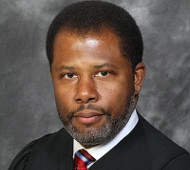7/13/2018
Toledo Refuses To Accept Ohio Supreme Court VerdictToledo, Ohio files new lawsuit to save $2.3 million in speed camera revenue.

The Ohio Supreme Court last month rejected Toledo's argument that a friendly local judge could block the legislature from passing laws that might affect the municipal speed camera program (view ruling). The high court blasted the lower court for attempting to interfere with the General Assembly's constitutional authority to pass laws. Eight days later, the city was back in the Lucas County courthouse with a new attempt to block Ohio's 2015 budget law, House Bill 64, which reduced funding to municipalities that refuse to abide by a number of limited restrictions on the use of automated ticketing machines.
Calling the state lawmakers' move "economic coercion," Toledo law director Dale R. Emch insisted it was unconstitutional for the legislature to reduce local government aid payments in the exact amount of revenue generated by photo radar. The effect of House Bill 64 is extremely limited, especially for small speed trap towns that have embraced cameras. Brice, for example, only collects $9969 in aid payments from the state, an amount that it is likely willing to give up in favor of $1.8 million in profits that its private photo ticketing vendor is able to generate annually. Toledo, on the other hand stands to lose $2.3 million from its $7.6 million aid payment. As a result, the city filed its latest legal challenge.
"The state cannot prohibit or regulate municipalities from utilizing automated traffic cameras, and it cannot directly or indirectly enforce unconstitutional laws by withholding or threatening to withhold local government funds if the unconstitutional laws are not followed," Emch argued.
Last month's state Supreme Court ruling left open the posibility that the city could attempt to make its arguments about the constitutionality of camera restrictions, but lower courts could not use these arguments to issue an injunction that interferes with the constitutional authority of the legislature. Toledo repeated its argument that the General Assembly could not do anything to limit the use of speed cameras.
"Because the penalty provisions seek merely to limit the city's ability to exercise home rule powers, they are unconstitutional," Emch insisted. "Allowing the penalty provisions to apply to the city will require... an increase in financial burden... [and] a reduction in local government funds."
The case has been assigned to Judge Myron C. Duhart. Ohio attorney general Mike DeWine (R) has yet to respond to the lawsuit.


